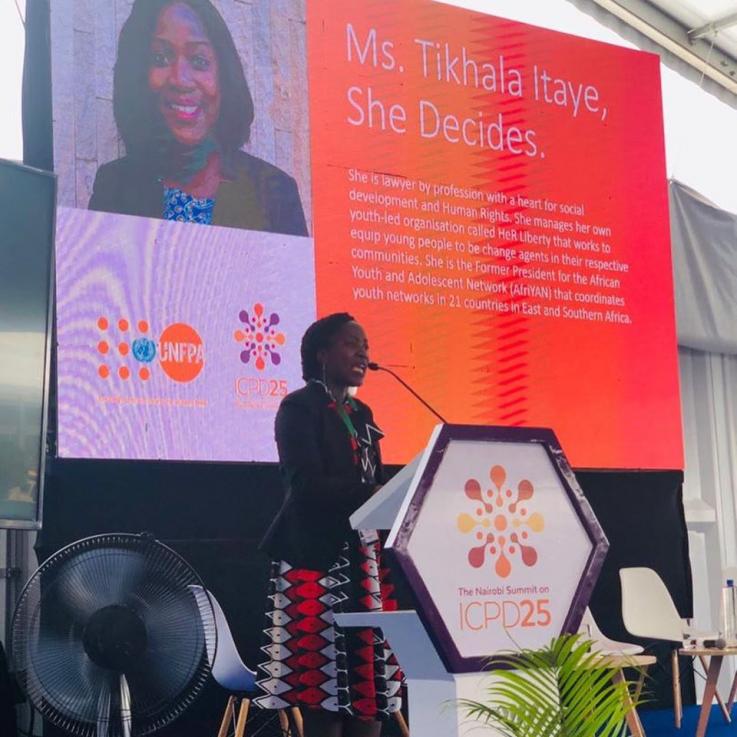
In November, Department of Global Health student Tikhala Itaye presented at the International Conference on Population and Development (ICPD), a high-level conference held in Nairobi and co-organized by the United Nations Population Fund (UNFPA) and the governments of Kenya and Denmark.
Itaye, a first-year student in the department pursuing a Masters of Public Health, is a native of Malawi specializing in Leadership, Policy and Management. In addition to her work as a DGH student, Itaye has a background as a lawyer overseeing matters in sexual reproductive health and rights. Itaye also serves as the Chairperson of She Decides, a global movement committed to making the world better, stronger, and safer for women and girls globally.
Itaye recounted her time at the conference and shared her vision for the world she hopes to create.
What is the purpose of the conference, why were you there, and what was your presentation was about?
From November 12-14, the government of Kenya, Denmark, and the United Nations Population Fund (UNFPA) co-convened the Nairobi Summit on the International Conference on Population and Development (ICPD). I was there because for the past eight years I have been working in global advocacy for sexual reproductive health and rights and had closely worked with UNFPA and other international and local partners in Malawi. I am currently chairing a global movement called She Decides that is hosted by the International Planned Parenthood Federation to advance women’s and girls’ rights.
I was invited to present key closing remarks at the high-level women leadership session. The session brought together senior women leaders (including the First Lady of Kenya, Her Excellency Margaret Kenyatta), ministers, heads of agencies and multilateral institutions, parliamentarians, leaders in research and academia, business and the private sector, CSO leaders, young women leaders, media personalities and celebrities, among others.
People from all over the world and many different backgrounds – united in the pursuit of sexual and reproductive health and rights – came together to advance the implementation of ICPD by taking stock of the positive outcomes of the last 25 years that are hindering faster progress.
The session looked at the role of women leaders in the ICPD25 agenda. My remarks focused on leveraging the collective power of women leaders of the ICPD focusing on Sexual Reproductive Health and Rights, identifying critical barriers (financial, economic, political and systematic barriers), and looking at how we can accelerate best practices that can fulfill the goals of the ICPD Agenda.
What do you hope your work, and the conference in general, will accomplish for the field of global health?
Our desire is for sexual reproductive health and rights to be fully recognized as a public health issue and not be politicized and defined within religious and moral beliefs.
I also hope to attain universal access to sexual and reproductive health rights as part of universal health coverage that ensures that every woman and girl has the right to decide about her body, her life and future. Another goal of mine is to enhance political will to strengthen systems and policies that drive economic growth toward sustainable development.
What sort of lessons or knowledge are you hoping to bring back from the conference?
Something I took away from the conference is the ability to strengthen synergies and focus on the holistic picture. We keep hand picking what to fund or not fund, or what to prioritize, and not when the well-being of any citizen goes beyond health. The global health agenda is very fragmented and has many players working in silos.
We need to do away with the silos that dominate our world and that undermine the possibility of addressing most of our pressing global health programs. Most importantly, to be aware of what is happening at a global level – the things that are influencing and shaping our national agenda – and looking at how we can influence or hold duty-bearers accountable.